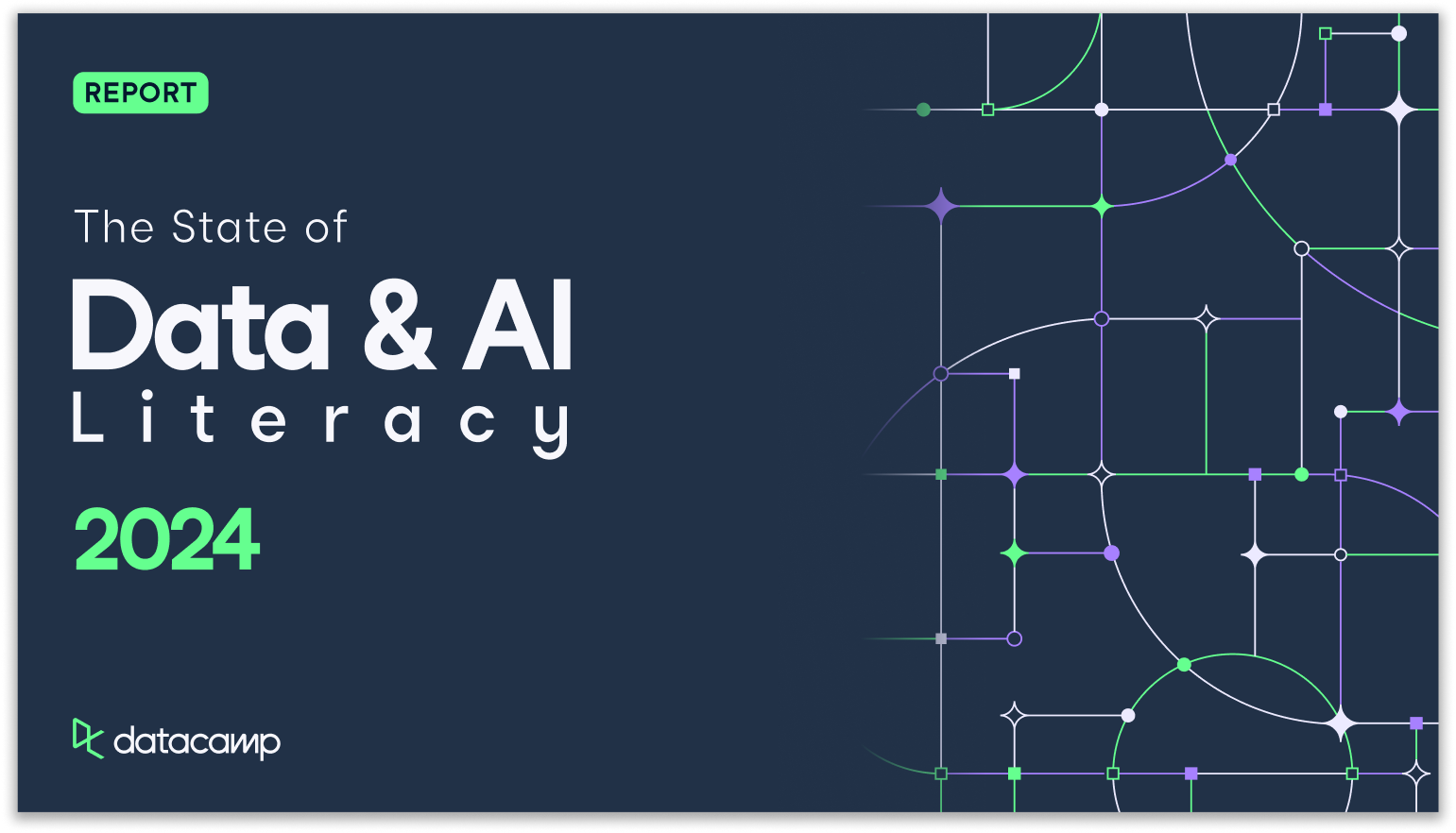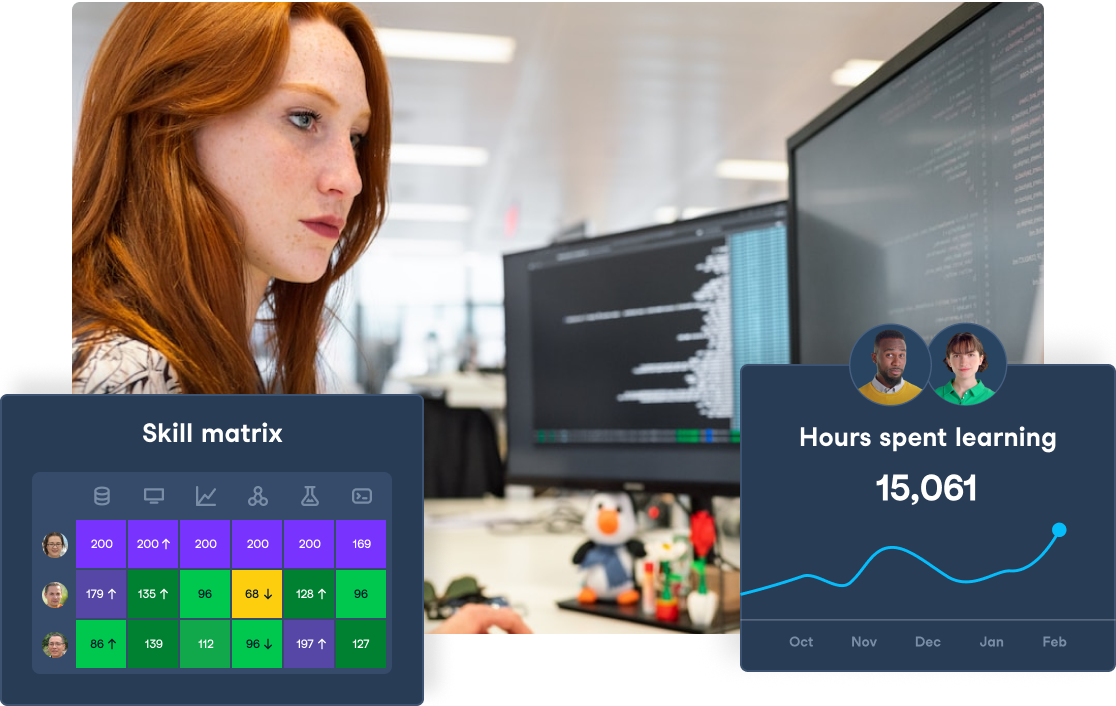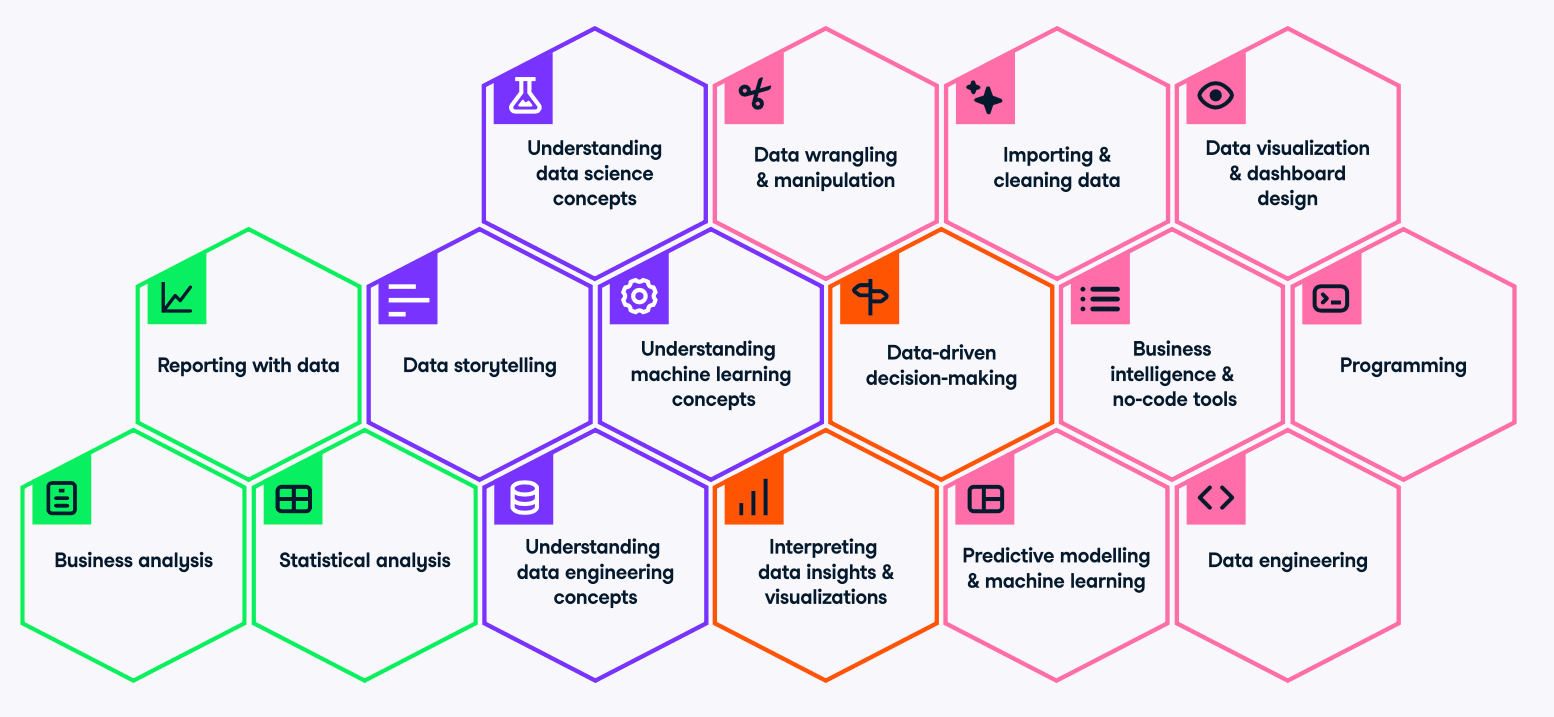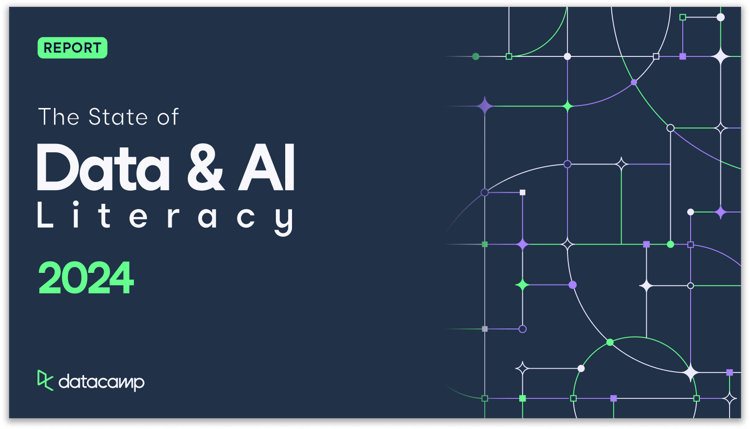Data literacy is fast becoming one of the key considerations for organizations worldwide. In this data-driven world we find ourselves in, it’s more important than ever before to be able to work with and understand data.
To understand just how important data literacy is and how business leaders value such skills, we commissioned a report on the state of data literacy. Gaining insights from two surveys targeting more than 550 business leaders from the UK and US, we’ve compiled our findings into a full report.
We encourage anyone interested in data skills and data literacy to read the full report to access our findings and insights. In this article, we’ll summarise some of the key findings you can explore in more detail. We have a separate article exploring why data literacy is important looking at some of the top stats from the report.
Download the State of Data & AI Literacy Report 2024
Uncover what 550+ leaders in the US & UK believe about the state of their teams’ data & AI skills.

The Data Literacy Imperative
The report begins by exploring what data literacy actually means and why it matters so much in today’s information age. Those we surveyed found that some of the fastest-growing skillsets over the last five years include:
- Business intelligence
- Data science
- Basic data literacy skills
Furthermore, we found that 89% of UK leaders and 78% of US leaders believe that data literacy is important for their teams' daily tasks.
Those we surveyed also identified that a lack of data skills could be costly for both individuals and organizations. 41% of respondents across the US and the UK identified inaccurate decision-making as the number one risk of inadequate data skills, while slow decision-making, decreased productivity, and a lack of innovation were also downsides of lacking data skills.
For individuals, it’s clear that those with the necessary data skills can command a premium when it comes to salaries. For example, about two-thirds (66%) of leaders stated that they would be willing to pay a higher salary to a candidate with good data literacy skills over a candidate without them, with 77% of those who said yes claiming they would pay at least 10 to 15% extra.
Empower Your Team with Data Literacy
Enhance your team's data literacy and decision-making capabilities with DataCamp for Business. Access diverse courses, hands-on projects, and centralized insights for teams of 2 or more.

Adapting to the Era of Data Literacy
It’s one thing to identify the gaps and opportunities surrounding data literacy, but it’s quite another to deliver the necessary training. In Section 2 of the report, we explore how organizations can adapt to the era of data literacy.
We hear from a range of professionals in the report outlining how to build a data training framework that’s suitable for your organization. As well as determining who should own data skills training and how to overcome the challenges that most organizations face. Contributors inlcude Cindi Howson, the Chief Data Strategy Officer at ThoughtSpot. She outlines that:
‘The Chief Data Officer should own the data literacy agenda, but that is also largely dependent on where the CDO sits within the broader organization. The Chief Learning or People Officer is also integral…’
But what skills are the most important? Business and data leaders in both the UK and the US highlighted that data-driven decision-making was the most sought-after skill, with data visualization, data analysis, and data storytelling all being highly valued.
Interestingly, while 79% of respondents said their organizations offered some form of data skills training, only around a third of organizations had a mature training program that included all employees. 18% of respondents said their organization offered no form of data training, despite the recognized benefits of a mature, organization-wide upskilling program.
Of course, it’s not as cut and dry as implementing such a mature training program overnight. It’s clear why only a third of organizations have been able to implement a mature data training program. Respondents identified some of the main challenges of upskilling in data literacy as a lack of budget, inadequate training resources, and a lack of executive support and ownership.
Best Practices Learned From Leaders in Data Upskilling
Section 3 of the Data Literacy Report 2023 focuses on combating some of the challenges identified in Section 2, looking at three main categories: executive sponsorship, learning experience and outcomes, and cultural challenges.
The report explores how DataCamp for Business customers have navigated some of the challenges that come with developing a data literacy training program and gaining buy-in across the organization.
As well as providing insights for data leaders to implement training programs, you’ll also find case studies, quotes, and a data competency framework to guide skill prioritization.
Some of the top tips include creating a personalized learning experience, building a learning ecosystem, and expanding the learning offering for your data literacy program with new learning modalities.
What The Future of Data Literacy Looks Like
The final main section of the report explores what the future holds for data literacy. Building on the insights gained from the rest of the report, we delve into how data leaders feel about what we can expect in years to come.
Perhaps the most glaring takeaway from this section is that almost 90% of our respondents agreed that schools and universities must provide all students access to data literacy courses in their curriculum. Despite this, other evidence shows that just 48% of academic institutions in 2021 had data literacy skills initiatives in place.
Another consensus was that data literacy skills are foundational skills in the 21st century, with 88% of respondents agreeing with this sentiment.
Download the Full Report
We’ve touched on a fraction of the findings from the State of Data Literacy Report 2023. You can download the entire report to learn more about the present and future of data literacy and how it might impact your organization.
Training 2 or more people?

A senior editor in the AI and edtech space. Committed to exploring data and AI trends.




